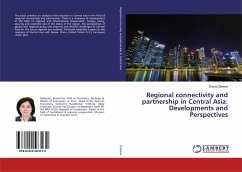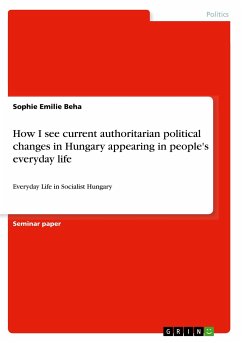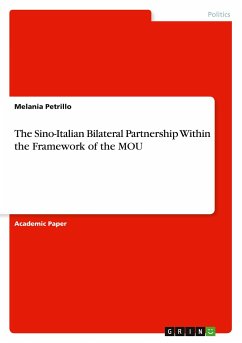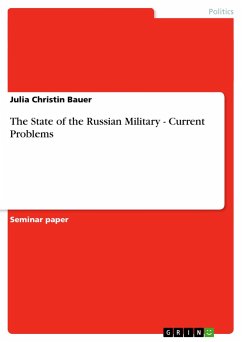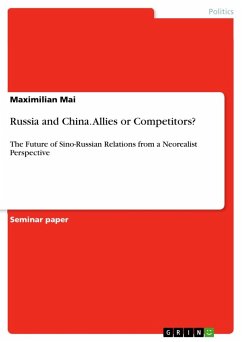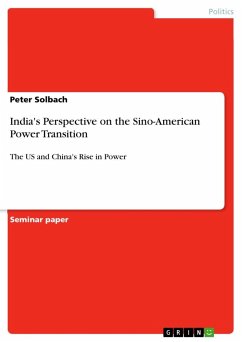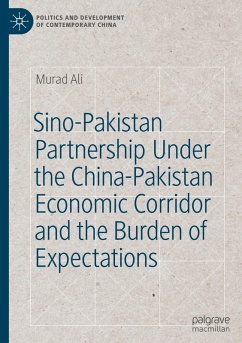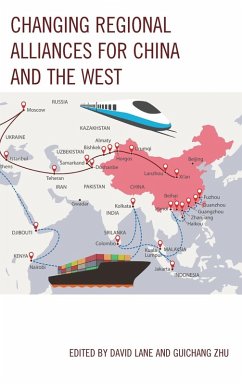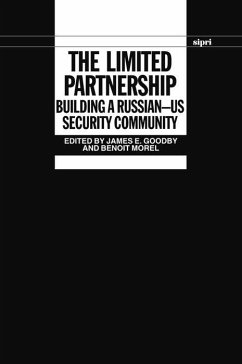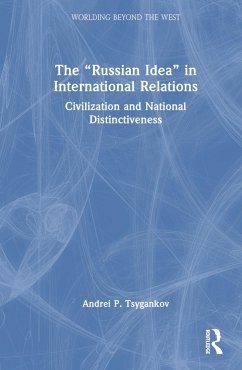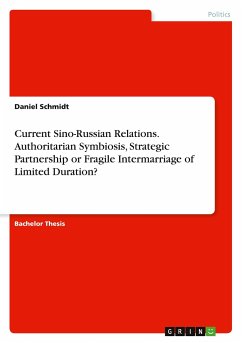
Current Sino-Russian Relations. Authoritarian Symbiosis, Strategic Partnership or FragileIntermarriage of Limited Duration?

PAYBACK Punkte
0 °P sammeln!
Bachelor Thesis from the year 2019 in the subject Politics - Region: Russia, grade: 1.0, Rhine-Waal University of Applied Sciences, language: English, abstract: In times of global political cataclysms, where the old Washington-led Western liberal order is stumbling ¿ with nationalism and protectionism on the rise and old alliances being challenged ¿ a new kind of super heavy Sino-Russian diplomatic ¿double star system¿ is apparently rising in the east since 2001. Thus, I dedicated this paper to the examination of the quality of contemporary Sino- Russian relations. The hypothesis is, that ...
Bachelor Thesis from the year 2019 in the subject Politics - Region: Russia, grade: 1.0, Rhine-Waal University of Applied Sciences, language: English, abstract: In times of global political cataclysms, where the old Washington-led Western liberal order is stumbling ¿ with nationalism and protectionism on the rise and old alliances being challenged ¿ a new kind of super heavy Sino-Russian diplomatic ¿double star system¿ is apparently rising in the east since 2001. Thus, I dedicated this paper to the examination of the quality of contemporary Sino- Russian relations. The hypothesis is, that if Sino-Russian relations live up to the high level that is reiterated by their respective officials and state sponsored media, it needs to be observable that such is thoroughly beneficial for both sides¿ core and long-term interests. Therefore, I have come up with a two-tracked approach. First, I will quantitatively analyze (i) their voting behaviors at the UNSC and UNGA; (ii) the development and composition of their bilateral trade levels; and (iii) the two state¿s comparative classical indicators of strength ¿ i.e. population size, GDP levels, and defense spending levels. Second, I will qualitatively analyze how Sino-Russian relations unfold within the context of (i) the military-security focused SCO; (ii) the regional economic agenda of the two concepts of EAEU and SREB; and (iii) the multilateral global order aspirations of the BRICS and their recent process of institutionalization via the NDB and CRA. My research implicates that the relationship has already passed its point closest to equilibrium, with Russia becoming increasingly marginalized since. Hence this thesis argues that, albeit there are areas of matching interests, the indicators point towards a questionable long-term durability of the Sino-Russian relationship.




